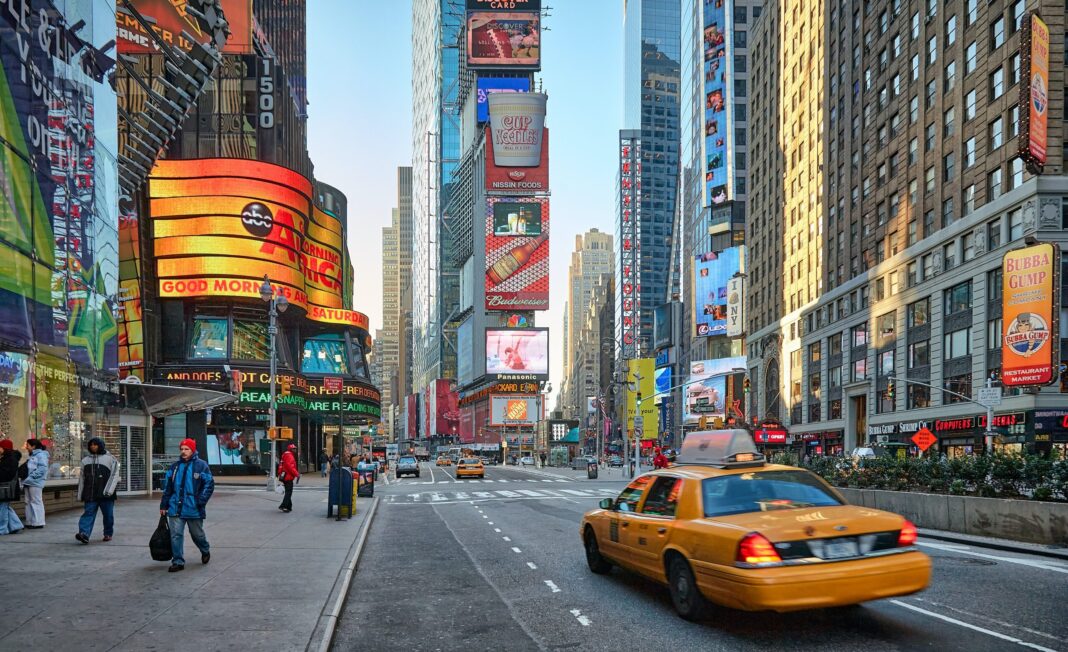By Gianna Pontecorboli – New York
This article appeared first on our partner publication Lettera22*
The latest Wall Street Journal survey presents a merciless and, in many ways, worrying picture of America today. But it is also an essential image for those who want to understand what is happening, at a politically and economically difficult time for everyone, in the greatest power in the western world. The survey was carried out by the Wall Street Journal in collaboration with the University of Chicago, and offers a glimpse of the social and cultural changes that recent years have produced in US society.
“The values that had unified Americans for many decades are fast fading, especially in the younger generation”, the pollsters discovered after interviewing 1,019 adults via the Internet or by telephone. “So, while a similar survey in 1998 showed that patriotism, religion, and a sense of family were a strong, common unifying ground, the landscape has now changed.”
In the divided and embittered America of 2023, Americans who described patriotism as ‘very important’ fell from 70% in 1998 to 38%, those who described religion as ‘very important’ dropped from 62% to 39%, and those who showed an interest in involvement in society plummeted from 47% to 27%. In the last four years, the value placed on tolerance has fallen from 80% to 58%. The myth of American exceptionalism is now believed by only 21% of respondents, while 27% now believe that other countries are better: 8 points more than the responders from 2016.
“These differences are dramatic, painting a striking new portrait of a changing America,” polling expert Bill McInturff explained to NBC. He argued: “Perhaps they are the price of our political division, of the Covid pandemic, of declining confidence in the economy”.
At a time of profound international uncertainty, the significance of the data sends a message that transcends the borders of the United States and shows very clearly all the insecurities and divisions that the attack on the Twin Towers, the financial crisis of 2008, and above all the rise of Donald Trump have left in a country that still would like to have world leadership.
For today’s Americans, money has become more important than it was in the past, but pessimism about the country’s economic future is deep and common, 80 per cent rate the economic situation as ‘not very good’, 85 per cent do not expect it to improve in the immediate future, and 78 per cent do not expect their children to live better than they do. Slightly more than half of the respondents think it would be difficult today to find a new job with the same benefits as they enjoy now, and 56 per cent are convinced that a college degree ‘doesn’t justify the expense because kids often graduate without specific job skills and with huge debts’.
The poll shows how the rifts that split American society separate Republican and Democratic voters predictably. But they also separate – and this is probably the most novel finding – respondents who are under 30 from those who are older.
More than half of Republicans, to give just one example, believe that society has gone too far in promoting racial and ethnic diversity in the workplace, but only 7% of Democrats agree. And at the same time, while 61% of Democrats believe that efforts to promote diversity are not enough, only 14% of Republicans share this view. And along party lines is the choice to continue to consider patriotism an important value.
“For me, patriotism has turned into the nationalism of the ultra-right,” former Pentecostal pastor Janet Boyer, who votes Democratic, explained to interviewers.
Among younger and older people, however, the differences are even more striking. While patriotism and religion still mean something to the over-60s, only a little over 20% of the under-30s consider them important. And it is only 23% of boys and girls under thirty who consider any plans to start a new family and have children in a world that promises them very little.
It is evident that finding a common path to move forward will not be easy: it only took a few figures from a sophisticated survey to show this this to the world.
Cover image: New York by Vidar Nordli-Mathisen

























